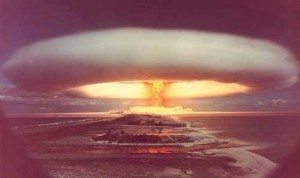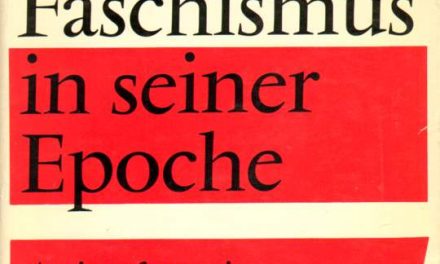Each year, on August 6, I’m reminded of the strange convergence. In the liturgical calendar, August 6th is the Feast of the Transfiguration, where Jesus goes up Mt. Tabor with Peter, James, and John, and they see the manifestation of his glory, as he talks with Moses and Elijah. It is a feast (and a story) that reminds us of the power and glory that was Jesus’ own, even as he came “in our midst as one who serves”: teaching, healing, washing feet. And, to paraphrase Philippians 2, he did not cling to the glory that was his, but instead humbled himself, choosing to make his most striking statement of power on the Cross. Christ did not stay on Mt. Tabor, but moved forward to Calvary.
And yet it was on this day in 1945 that the US, led by President Truman, dropped an atomic bomb on Hiroshima in Japan. Three days later, we would drop another on Nagasaki. There were certainly reasons to do this, which of course came down to shortening the war, saving American lives, and showing American strength to our enemies and our uneasy alliances alike.
But there is no room at all in the just war tradition for truly justifying reasons to use a weapon which cannot discriminate between soldiers and non-combatants. In all our talk (for instance, in moving into war with Iraq in 2003) about the danger of rogue nations having weapons of mass destruction, we tend to forget that the two most devastating usages of weapons of mass destruction were our own.
Each year on this day, I pull up Dorothy Day’s column on the bombing (worth reading in its entirety!), published in the Catholic Worker in September of 1945. I think of the courage it must have taken to publish it, in the midst of all of the celebrations as the war was over and the troops were coming home and America had proven its strength and won the victory. But she points out so powerfully that, as Christians, we have to look at not only the returning American troops but also the vaporized Japanese as our brothers and sisters. And in that light, jubilation is sorely out of place. Day’s words:
Mr, Truman was jubilant. President Truman. True man; what a strange name, come to think of it. We refer to Jesus Christ as true God and true Man. Truman is a true man of his time in that he was jubilant. He was not a son of God, brother of Christ, brother of the Japanese, jubilating as he did. He went from table to table on the cruiser which was bringing him home from the Big Three conference, telling the great news; “jubilant” the newspapers said. Jubilate Deo. We have killed 318,000 Japanese.
That is, we hope we have killed them, the Associated Press, on page one, column one of the Herald Tribune, says. The effect is hoped for, not known. It is to be hoped they are vaporized, our Japanese brothers — scattered, men, women and babies, to the four winds, over the seven seas. Perhaps we will breathe their dust into our nostrils, feel them in the fog of New York on our faces, feel them in the rain on the hills of Easton.
Jubilate Deo. President Truman was jubilant. We have created. We have created destruction.
I often use this column with my students, and I can tell you that, 68 years later, we are still divided. About half of them are horrified by the use of the atomic bomb. They find it shocking to imagine it was ever considered. But about half, as uncomfortable as they are with it, end up saying something like, “But we HAD to use the bomb. If we hadn’t, the war would have dragged on, we may have lost it, or we may have lost Europe to the Soviets while we were fighting in Japan.” And, of course, they are right. All of those are possible outcomes of the choice to refuse to use a weapon of mass destruction.
But it seems to me that there is one definite outcome of the same decision. You become a person and a nation willing to let the end justify the means, willing to kill the innocent in order to secure the world as you think you want it to be. For Christians, especially, that is a deep betrayal of our most basic values, and of our trust in God’s providential care of history. But even on American secular humanist terms, isn’t the first betrayal there? If we kill the innocent to preserve our way of life, haven’t we already betrayed the life we think is our goal?
Certainly, we won’t all agree, but it is crucial to take anniversaries like today and consider the decisions that were made, and to consider deeply and carefully what they have come to mean for us, and whether we would make the same decision today. These are the discussions and the arguments which help us decide and determine who we are and who we want to be.





Trackbacks/Pingbacks